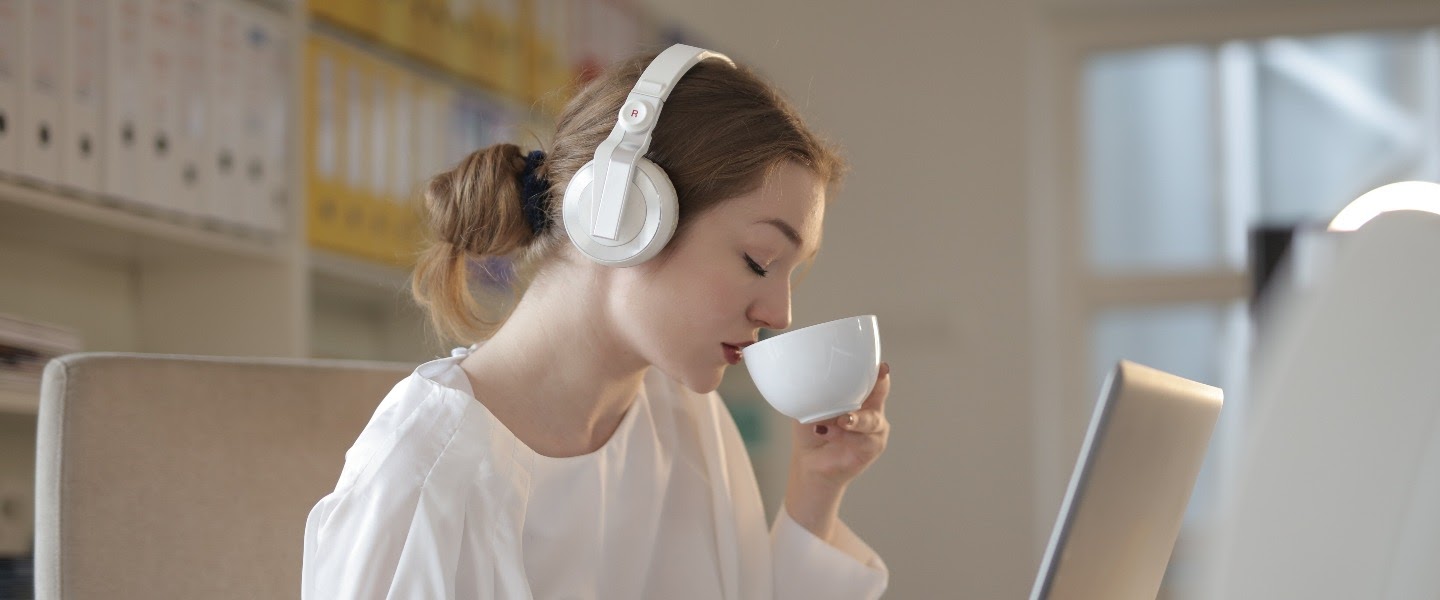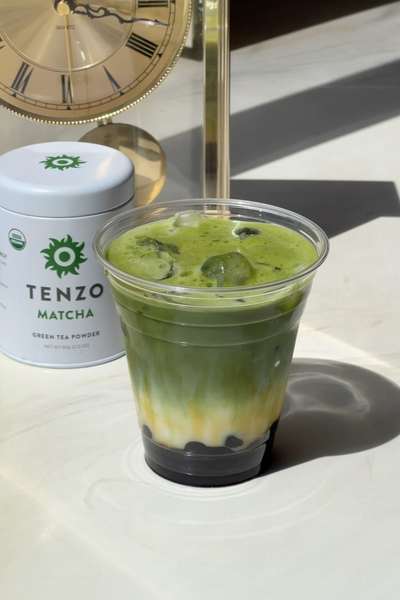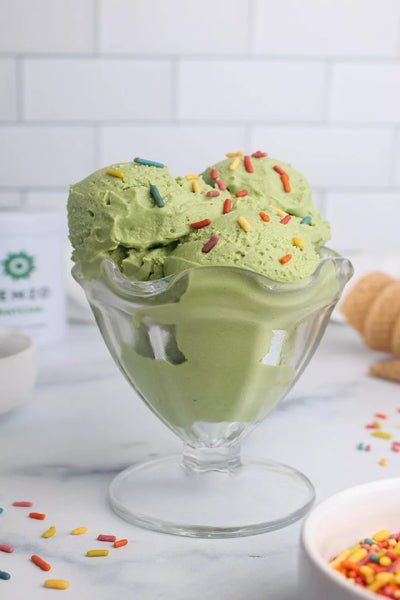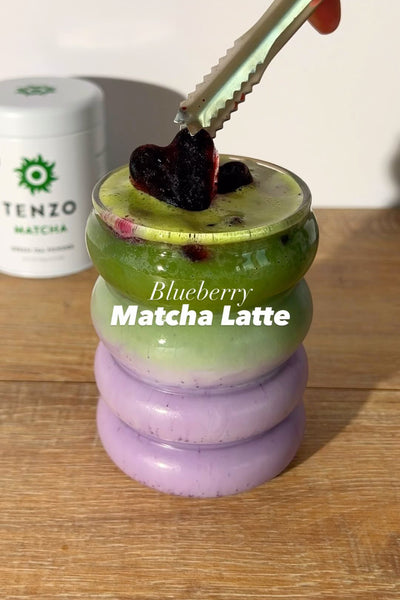How Long Does It Take For Caffeine To Kick In?

Caffeine drinkers know that feeling when the coffee or energy drink starts to take effect and they can enjoy a sense of focus, boost, and productivity. The length of time between when you drink your coffee or tea and when the caffeine actually kicks in will vary, depending on what kind of drink it is and your overall health and wellness, as well.
Here at Tenzo Tea, we believe that everyone should have access to the right caffeinated products and ingredients for their lifestyle and the information that can help them to prevent uncomfortable side effects and make great recipes.
Here are a few things you’ll want to consider when it comes to picking the right caffeinated beverage for your lifestyle and health needs, and for knowing when it’s going to kick in.
What is Caffeine?
You may turn to tea or coffee every morning for that extra boost of energy and alertness, but what really is caffeine?
Caffeine is a stimulant that is naturally derived from plants like the coffee bean, tea leaves, and cacao plant, which produces chocolate. While it is known to be poisonous and toxic to many animals, caffeine is used by people to boost energy in the morning or during the afternoon slump. It stimulates the nervous system so that you can remain productive and focused, even if your body needs rest or sleep.
Caffeinated beverages have been part of human civilizations for millennia. In fact, history indicates that tea leaves were used in China as far back as 5,000 years. In recent decades, caffeine has also been added to soft drinks and energy drinks, along with sugars and sugar alternatives that can also provide that important feeling of alertness and energy. Different types of products can cause different reactions, so it’s a good idea to explore your options to find the right caffeine drink to fit your lifestyle and personal wellness goals.
How Long Does It Take For Caffeine To Kick In?
There are many different types of caffeinated drinks, and each has their own level of caffeine content and ingredient combinations. The amount of caffeine you consume and the length of time it takes for the energy to kick in will vary depending on the type of drink and what, if any, additives may contribute to the boost. Here are some of the most common types of caffeine.
Coffee
Coffee is probably the first drink you think of when it comes to caffeinated beverages, and it’s not hard to see why. Over 60% of adults in the United States drink coffee every single day, which accounts for over 150 billion cups of coffee consumed in America in a single year.
While coffee is ubiquitous—and can provide that essential energy support, it’s not necessarily the best option for your caffeine needs. You’ll start to feel energized and awake about 30-60 minutes after you consume a cup of coffee—and coffee energy has a half-life of three to five hours. That means small amounts of caffeine can linger in your system for a long while after the energy-boosting effects have faded.
Energy Drinks
There are many different types of energy drinks and each has their own makeup of ingredients and caffeine content, but on average, energy drinks can begin to work in as little as 10 to 15 minutes. They last longer than coffee in your system, usually around five to six hours, and you may feel associated side effects like an increased heart rate and palpitations, difficulty falling asleep and dehydration.
It is important to note that energy drinks are made with added sugars and flavors, though, as well as many ingredients that are not naturally occurring. In other words, there are healthier alternatives for boosting your energy and focus.
Soda
A lot of the boost you feel when you reach for a caffeinated soda is from the added sugar, or sugar alternatives in the sugar-free soda options. Like energy drinks, soda will give you an energy boost in just about ten minutes.
While it can stay in the system for long, up to five to six hours, soda has significantly less caffeine than other drinks. With about 22 milligrams in eight ounces of soda to around 100 milligrams of caffeine in an eight-ounce cup of coffee, the effects can begin to wear off quickly, which can leave you craving more sugar and soda not long after you finish the first drink.
Tea
There are many different types of tea options and not all of them are caffeinated, so it’s important to find the right one for your needs if you’re on the search for that extra energy support.
The most caffeinated of the teas are green teas and black teas, and they can range in caffeine content from more than half the caffeine in a cup of coffee to less than a third. The caffeine in both tea and coffee is naturally occurring, so you can expect some similarities between them. Tea will take about 30-60 minutes to affect your body and will remain in your system for around three to five hours. There are fewer side effects to drinking tea over coffee, however.
Matcha Tea
Matcha tea is an excellent alternative to your other caffeinated beverage options because it can provide a similar amount of energy and focus, but without many of the associated crashes and side effects that often come along with drinking coffee or energy drinks. The caffeine content of matcha is higher than other types of green tea, since it is mixed with hot water, rather than steeped, and up to more than half that of coffee.
While matcha tea can begin providing that energy support you deserve as early as ten minutes after drinking, it is a much more gentle type of boost than coffee, so it will remain in your system with noticeable (but nor jarring) effects for anywhere between two and six hours.
Why is Matcha the Best Option for a Caffeine Boost?
When it comes to a healthy and long-lasting caffeine boost, there are many reasons you’ll want to swap your coffee for matcha tea, instead. Here are just a few.
Matcha Has Fewer Side Effects
While coffee is certainly effective at providing a jolt of energy, it often comes with associated side effects like caffeine crashes, dependency, headaches, and stomach pains. Matcha is much more gentle, and many of the energizing qualities come from its vitamins and antioxidants, which means it lasts longer and won’t leave you feeling more tired after.
Matcha is Rich in Health Benefits
Matcha is rich in many vitamins and antioxidants that can contribute to overall health and wellness, in addition to helping you focus and stay energized. You’ll find that it can reduce feelings of anxiety and stress, improve oral health and hygiene, and even help to boost your immune system.
Matcha is Versatile and Adaptable
You don’t need to drink your matcha tea in order to enjoy its many health and caffeine benefits. Matcha mixes well with breakfast dishes, desserts, and even cocktails, which means it can be introduced in your diet in many unique and delicious ways. And if you want to enjoy it without any additives or extra sugars, matcha is a bold and rich flavor all on its own.
In Summary
You have many different options for caffeinated drinks and supplements to pick from, whether you’re looking to start your day with energy, or you need a pick-me-up for that afternoon sleepiness. The truth is, though, that not all caffeinated beverages are the same, and some can have side effects that you’ll want to avoid.
Different drinks all vary in level of caffeine content and how long the caffeine stays in your system, so it’s important to explore your options to find the right caffeinated drink for your overall health needs and future wellness goals. And matcha tea might just be the right choice for you.
Here at Tenzo Tea, we share products that are healthy and natural, while still capable of getting you through the day with focus and productivity. Our matcha tea is rich in vitamins and antioxidants that can support your body in many ways and provide you with your daily caffeine without any of the uncomfortable side effects, like caffeine crashes or headaches. In fact, it often leaves you feeling even more refreshed and ready to go.
When you’re ready to explore the benefits of matcha tea for yourself, check out the options and information available here at Tenzo Tea!
Sources:
https://www.healthline.com/nutrition/what-is-caffeine
http://sleepeducation.org/news/2013/08/01/sleep-and-caffeine










